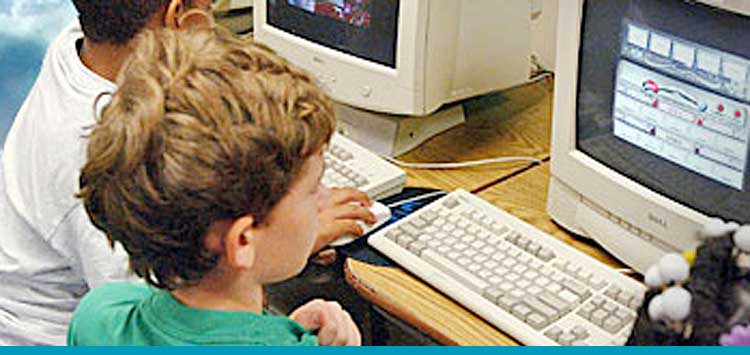Improving Math Performance through Engineering Design
Overview
WISEngineering is a collaborative $249,453 proof of concept project, supported by the Bill and Melinda Gates Foundation, with Hofstra University, University of Virginia, and the Center for the Advanced Study of Education at CUNY. WISEngineering is a technology-based curriculum delivery, assessment, and feedback system that uses informed engineering pedagogy to introduce middle school math in innovative ways. It will engage learners and educators, promote deeper conceptual understanding, and provide in-time assessment feedback to guide learning and instruction. Using CAD software such as ModelMakerTM, students will create virtual open-ended engineering design projects that apply targeted math and then digitally fabricate the solutions using SilhouetteTM. The learning activities underlying the design challenge, Knowledge and Skill Builders (KSBs), will be completed in a virtual, web-based, environment using a stylus, mouse or keyed input. Students’ designs will require that they meet specified math requirements and restrictions, promoting deeper understanding of the concepts. Students will capture and record their designs in personal virtual journals.
The WISEnginnering interface will facilitate individual and group work. A FacebookTM like sharing feature associated with student design journals will allow for increased collaboration and group work. The use of virtual and hands-on math experiences to think, create and construct using an engineering lens will be particularly appealing to students who are often disengaged from traditional classroom-based learning experiences. WISEngineering will have the capability to present design challenges that are compatible with a students’ math level and to then present more advanced challenges as students demonstrate greater proficiency. Links to relevant simulations, videos, web resources and additional problems will provide support for students and teachers interested in deeper, additional or extension information. Multiple assessment options will help enhance and differentiate instruction and learning for teachers and students. The WISEngineering environment will have the capacity to provide individualized student support in high-need schools where access to resources may be limited and teacher student ratios may be high, despite tremendous need for differentiated instruction.
Proof of concept work for WISEngineering will address three seventh grade Common Core Math Standards. Formative and summative assessments will be integrated into WISEngineering, facilitating continuous feedback to students and teachers. WISEngineering will capture individual student work, even if the student is working within a team, using virtual design journals and design portfolios. Pre-post and embedded assessments will provide feedback about what students are doing and learning, along with information from within the environment (e.g., navigation and collaboration patterns, data about the types of materials accessed, time on task, etc., all downloaded into an excel sheet with summary charts available), design journals and design portfolios. Educators will be able to monitor student progress and will be provided recommendations for needed additional support. Fabricated solutions will be assessed in the real world environment, while videos and photos of the final solutions will be uploaded to the design journal and available for review. The direct beneficiaries are the students. Our preliminary research has shown tremendous student engagement and interest in learning, achievement in learning and anecdotally in STEM careers, such as engineering and architecture. For this proof of concept project, the immediate organizational beneficiary will be the Paterson school district, a high needs urban district in New Jersey and their seventh grade mathematics curriculum.
Resources
- Community Center Video
Students in Nathaniel Gerson’s class at Don Bosco Technology Academy in Paterson, NJ implementing the Community Center design curriculum.
Publications and Presentations:
- Burghardt, M. D., Chiu, J.L, and Hecht, D. (2013). Infusing Informed Engineering
Design Pedagogy in K-12 Math and Science Courses. 2013 Hawaii International
Conference on Education. Honolulu, HI. - DeJaegher, C.J., Chiu, J.L., Burghardt, M.D. Hecht, D., Malcolm, and P.T., Pan, E.. (2012).
Learning Common Core Math Concepts with WISEngineering. ASEE Annual Conference, San Antonio, TX. - Malcolm P. T., Chiu J.L.., Pan E., and Burghardt, M.D. (2012). WISEngineering: A Web-based Engineering
Design Learning Environment. ASEE Annual Conference. San Antonio, TX.
Final Report
- 11/08/12 (pdf file)


